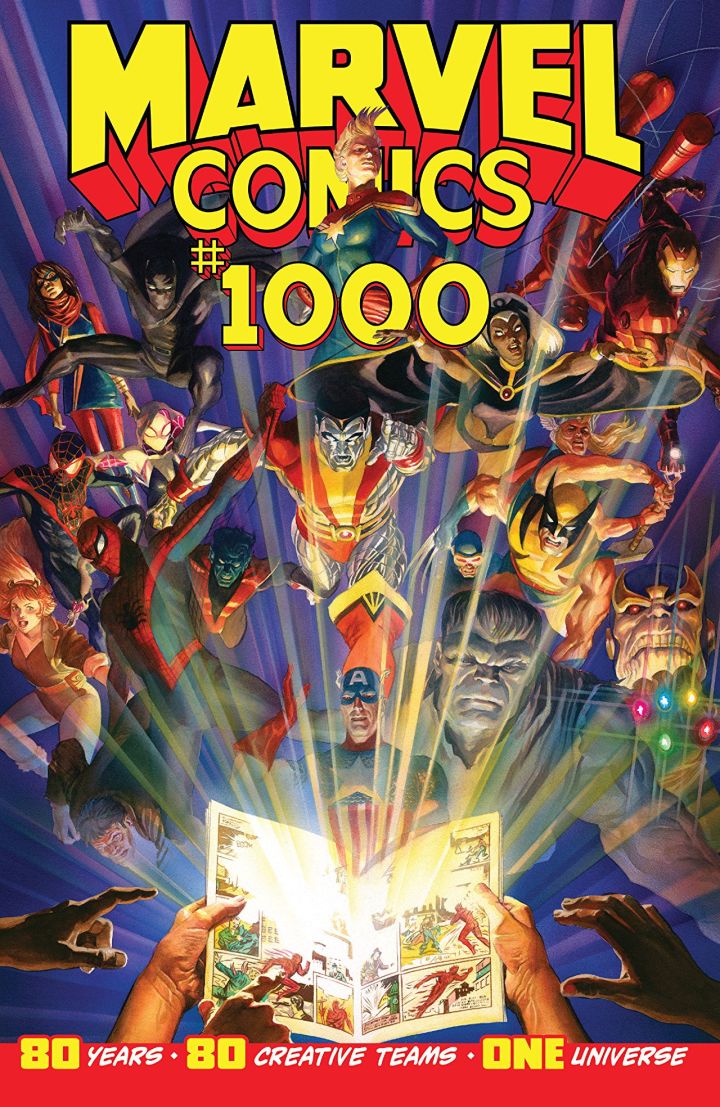Thursday Comics Hangover: It's a marvel

Yesterday, Marvel Comics published a giant ten-dollar comic to celebrate the company's 80th year in business. They titled the comic, confusingly enough, Marvel Comics #1000. That doesn't make any sense — Marvel has published way more than one thousand comics, and there was no series called Marvel Comics that ran for anything near a thousand issues.
But even though the title is worse than meaningless, the book is a lot of fun. It's made up of over 80 single-page comics that span the breadth and depth of the Marvel universe, including characters ranging from Tessie the Typist to the Incredible Hulk to The Whizzer. Each page echoes some moment in its corresponding year in Marvel History — the debut of Strange Tales, for instance, is accompanied by a funny and beautiful strip starring Doctor Strange by Mike Allred — though some of the more recent years are definitely stretching to find a milestone to celebrate. (I'm not sure Stan Lee cameoing in Guardians of the Galaxy Vol 2, commemorated in 2017, is especially noteworthy, given that he appeared in every Marvel movie through Avengers: Endgame.)
Not every page will make sense to every comics reader, but the book is delightful because it's a celebration of what makes comics unique. The best strips — particularly one featuring Captain Marvel explaining the predictable cliches of every climactic battle — stretch the form of comics to see how much information can be packed into a single comics page.
There's an ongoing story, too, mostly in the pages written by Al Ewing, about a mysterious organization that has haunted the Marvel Universe from its very beginning and their quest to harness a previously undiscovered object of power. It's melodrama, to be sure, but it's great melodrama of the kind that made Marvel Comics so compelling to audiences over the decades.
One continuing theme in the book involves various Marvel heroes being interviewed by someone with a single question: why do you do what you do? Some of the answers are cliched, but others are genuinely insightful — little bursts of novelty that cause readers to look at well-documented characters in a new way. And there's a Spider-Man strip that is at once touching, thoughtful, and a little bit creepy — in other words, it touches all the bases of a good Spider-Man story.
I was prepared to not enjoy Marvel Comics #1000, because most self-tributes are treacly and sentimental. This book, however, succeeds because it's not so much a tribute to the characters of Marvel Comics, but instead a tribute to the medium that made the characters so unique in popular culture. This is a tribute to comics, and their unique storytelling abilities. It's a remarkably pure celebration of the joy of comics.